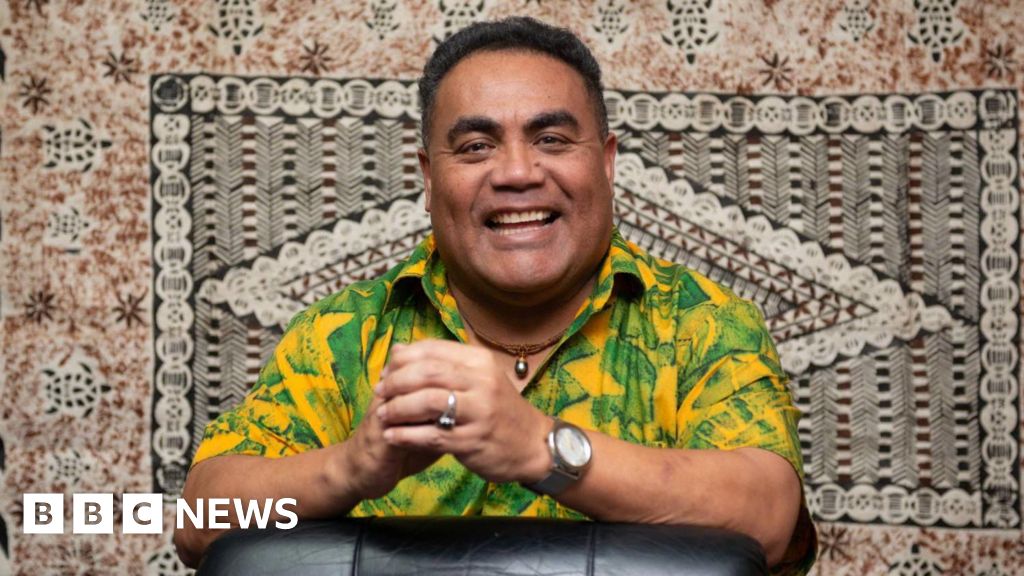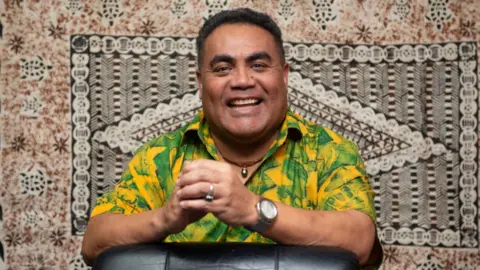 Christopher Cocker
Christopher CockerThe Pacific Islands are scattered across a vast area of ocean, with some of the clearest waters in the world, and pristine beaches and rainforests.
They are a magnet for tourism, which is vital for many of the countries’ economies.
But the region’s travel industry, and those who rely on it, are increasingly fearful of the impact of continuing climate change.
“Pacific Island leaders have declared climate change as the foremost threat to the livelihoods, security, and well-being of Pacific communities,” says Christopher Cocker, the chief executive of the Pacific Tourism Organisation.
“Without immediate and innovative action, the future of tourism in the region remains highly uncertain.”
He adds: “All islands of the Pacific are vulnerable to the impacts of climate change. However, low-lying atoll countries like Tuvalu, Kiribati, Marshall Islands, and the Federated States of Micronesia are more vulnerable.
“These islands are not only prone to inundation from rising seas, especially during king tides, but access to clean and safe drinking water is a challenge, with prolonged droughts and unpredictable rainfall patterns.”
Then there’s the threat of erratic and potentially devastating tropical storms, which are ranked from one (the weakest), to five (the strongest).
Australia’s Bureau of Meteorology has said that climate models of the Pacific Ocean have suggested “there could be a future shift towards fewer, but more intense, cyclones”.
However, in Tonga locals say they are now seeing stronger storms hit more often.
Nomuka is a small triangular island in Tonga’s Ha’apai archipelago, about 3,500km (2,175 miles) north-west of Sydney, Australia. Surrounded by ocean, its population of about 400 people feels at the mercy of nature’s whims and fury.
“We live with cyclones almost every year. I grew up there, and there were usually one or two that come in for a direct hit,” says Sione Taufa, an associate dean Pacific at the University of Auckland Business School, and a member of the New Zealand-Tonga Business Council.
“But nowadays we are seeing more of those category four or five cyclones coming in much more regularly.”
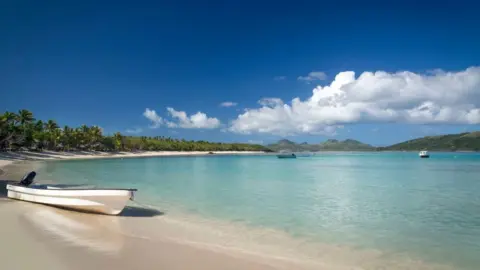 Getty Images
Getty ImagesThe peril that Pacific Islands states face has been highlighted recently by United Nations Secretary-General António Guterres. Last month he attended the Pacific Island Forum Leaders Meeting in Tonga, and called for the world’s most polluting countries to cut their greenhouse gas emissions.
“The small [Pacific] islands don’t contribute to climate change but everything that happens because of climate change is multiplied here,” he said.
A two-hour flight heading north-west from Tonga are the islands of Fiji, a former British colony.
Last year Fiji welcomed 929,740 visitors, mostly from Australia, New Zealand, North America and China.
Here, too, there is anxiety about a shifting climate.
Marica Vakacola is from the Mamanuca Environment Society, a community organisation based in Nadi, by Fiji’s main international airport.
The group champions sustainable tourism and environment protection, and is restoring mangroves and planting trees. But Ms Vakacola tells me that this part of Viti Levu, Fiji’s biggest island, is already living with the consequences of warming temperatures.
Bore water is being contaminated by salinity from the encroaching sea and, more and more, rainwater must be harvested during the wet season.
“Water security is a big risk in terms of climate change,” explains Ms Vakacola.
“Most of the freshwater sources that were once good enough to be consumed are now being intruded by salt water. Beach fronts are being eroded by rising sea levels and we have experienced coral bleaching events because of changing temperatures of seawater.”
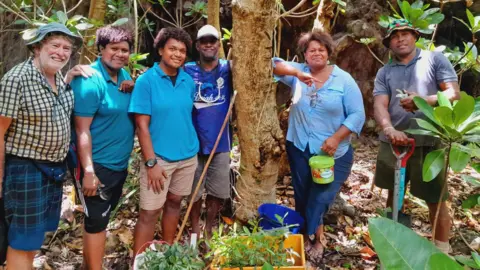 Marica Vakacola
Marica VakacolaSusanne Becken, a professor of sustainable tourism at Griffith University in Australia, foresees potential for friction over scarce supplies of water across the Pacific Islands.
“Drinking water is increasingly becoming an issue in some places,” she says.
“There could be conflict with the community because tourists effectively use the water that local people need.”
Prof Becken has recently undertaken research in Fiji and the Cook Islands. It revealed some unexpected attitudes to climate change and the threat it brings to the island nations.
“There’s a bit of denial, where people were a little bit fatalist in the sense that there is not much we can do about it. It was easily dismissed as a global problem that the Pacific Islands can’t do much about. I was a bit surprised, to be honest, that people maybe feel a little bit helpless.
“It is almost like ‘let’s not talk about it’. Maybe they are preoccupied about getting growth of the tourism market back. It is not part of the story. It is a really tricky topic.”
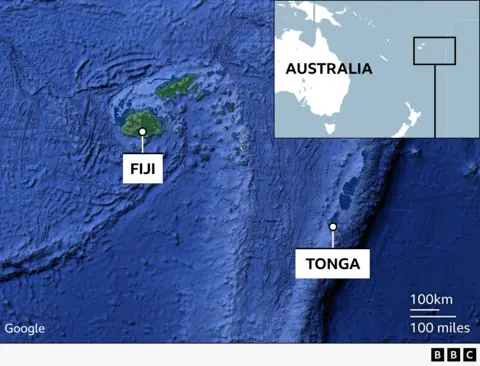
Hard truths are, though, being confronted in the Cook Islands, a jewel of Polynesia popular with New Zealanders and Australians, where most of the tourism infrastructure stretches in ribbons around the coasts of the main islands.
Brad Kirner is the director of destination development at the Cook Islands Tourism Corporation. He concedes that discussions about global warming in the community can be fraught.
“If we face reality it’s going to need some pretty serious adaptation measures put in play. It’s a challenging conversation.
“There’s also the challenging conservation that, yes, travel is a significant contributor to global warming, and we need to face that fact. How do we come up with solutions?”
“We are a tiny percentage of world population and therefore we have a very small carbon footprint, but we are on the front line of climate change,” he adds.
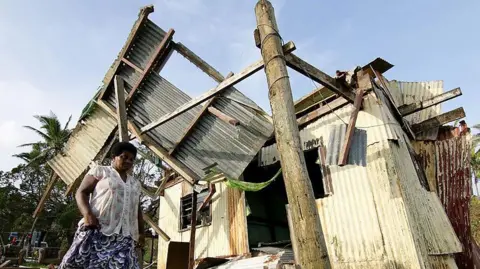 Getty Images
Getty ImagesWhile there might be a sense of despair, it shouldn’t be mistaken for an admission of defeat. Far from it. Tenacity runs deep in some of the world’s most isolated nations.
Social systems vary across the islands, where the influence of kinship groups, community networks and the diaspora in Australia, New Zealand and beyond is paramount.
“Obviously, they will appreciate all the assistance that is given especially in the aftermath of any natural disaster, but being treated with a victim mentality isn’t quite helpful,” says the University of Auckland’s Sione Taufa.
“If any assistance comes we’ll be grateful for it, and if it doesn’t we’ll try our best to survive. You lean on your neighbours to help you in time of need. Most importantly, it is a trust system.”
